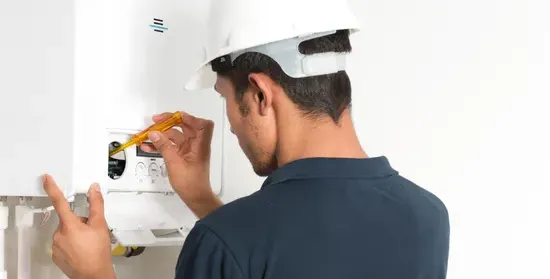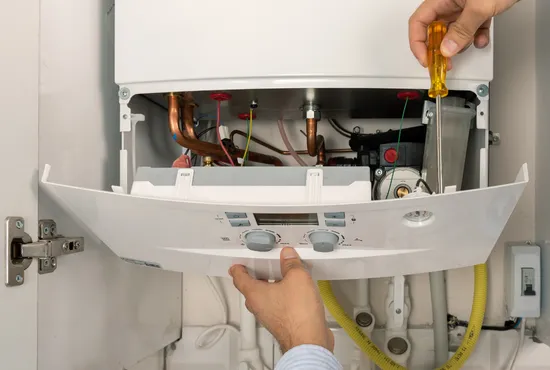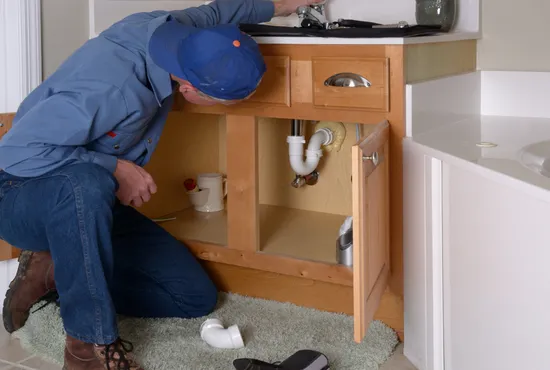
Winter season is a paradise for scammers - watch out for repair scam
The winter season is a magnet for scammers, and it's essential to be aware of the many schemes they use to take advantage of unsuspecting victims. In particular, one scam that comes up frequently during this time of year is the repair scam. This is when criminals pose as home repair service providers in order to extract money from people who are desperate or unaware of the truth.
These types of scam are all too common in the UK. People from across the country have been targeted by dishonest companies, who promise to provide quality services only to leave them with faulty boilers or large bills. They take advantage of vulnerable people, often elderly, by convincing them that their existing boiler needs expensive repairs or replacement when it’s actually working fine.
The most common repair scams

Scam artists use a variety of tactics and techniques to lure victims in:
1. The most common scam is when someone knocks on your door or calls you, promising they can repair your leaky roof, replace existing windows with more efficient models and install the latest solar panels. They might even contact you following a flood, windstorm or other natural disaster - trying to capitalize on your urgency while pressuring you for quick action; offering cash-based payments and potentially financing options too. Unfortunately after that all happens? Your money is gone, but no repairs are ever made!
2. They might also offer false guarantees for the work they claim needs to be done, or even high pressure sales tactics that make it seem like you have no choice but to pay them.
3. The scammers pressure customers into signing contracts right away and doing work that isn’t necessary or is grossly overpriced.
4. They may also try to sell additional products like extended warranties even though they know that warranty won’t be honoured.
5. The other type of scam is a repair scam where rogue traders carry out unnecessary repairs or use substandard parts. In some cases, they may even claim to have replaced the boiler completely when they haven’t.
These scams are illegal and cause huge financial hardship for vulnerable people who can’t afford to pay expensive bills or replace their boilers when something goes wrong.
How does the boiler scam work?

When it comes to the winter season, you need to be particularly wary of anyone who will want to repair or replace your boiler. When it's cold outside or we lack hot water at home, we often don't think about the consequences, but just want to fix the fault quickly.
Very often criminals pose as energy suppliers or government representatives and contact people by phone, email, text message or door-to-door visits. They typically offer to replace the customer's old boiler with a new one for little or no cost.
The scammer then requests an advance payment to cover installation costs and/or materials, but fails to deliver on their promise.
The typical scenario involves convincing victims that they qualify for government programs offering new boiler for free (which may not exist) or other discounted products and services. Scammers often use high pressure tactics such as claiming that the offer is only good for a limited time in order to convince their victims to make quick decisions without verifying the legitimacy of the offer.
Victims may also be asked to provide bank account details or other personal information that could be used for identity theft purposes.
In some cases, victims are even pressured into signing contracts with unknown companies without being given time to read and understand them.
Boiler scams can have a devastating financial impact on victims and it is important to remain vigilant and verify any offers before agreeing to anything. If you believe you may have been targeted by a boiler scam, contact your local authorities immediately.
Repair scammers often use high-pressure tactics such as providing an ‘urgent’ deadline and pressuring customers into making decisions quickly without taking the time to research more reliable services.
They may also offer bargain prices that seem too good to be true and avoid leaving proof of their services after receiving payment for them. It's important to remember that if something looks too good to be true, it probably is.
How to avoid repair scams?

To protect yourself from these scammers, it’s important to know the warning signs and how to avoid them.
Here are a few tips:
1. Always check reviews online before hiring any company or tradesperson. Look up their credentials, services offered and customer feedback on websites like Trustpilot or Google My Business.
2. Ask friends and family for recommendations – if anyone you know has used a reputable company in the past, ask them for advice.
3. Don’t sign contracts or pay large deposits until you have checked the company thoroughly and have read all the terms and conditions.
4. Ask for a quote in writing, with clear breakdown of services needed and costs involved before signing any agreement.
5. Make sure that any boiler repairs or replacement are carried out by qualified Gas Safe registered engineers.
6. Be wary of companies who pressure you into buying expensive products – they may be trying to scam you.
7. Never give out personal details such as banking information or credit card numbers over the telephone.
8. Always ask for written proof of any offers or discounts.
9. Understand all terms and conditions before signing any contracts.
10. Only do business with companies that have a valid physical address listed on their website or promotional materials
By following these simple tips, you can protect yourself from boiler scams and repair scams, ensuring that both your money and safety are protected when it comes to dealing with tradespeople or boiler maintenance companies. Stay safe! Good luck out there!
Gas-related work can only be conducted by registered Gas Safe engineers. Verification of registration may easily be achieved on the official website, www.gassaferegister.co.uk/help/check_a_business_or_engineer.aspx .
Companies House holds records of all limited companies in the UK and allows you to view when a certain company was established as well as if they have ever reported any returns - https://wck2.companieshouse.gov.uk//wcframe?name=accessCompanyInfo
What are the warning signs to watch out for?

When it comes to repair scams, there are a few warning signs you should watch out for if you want to avoid falling victim.
1. If the offer seems too good to be true (e.g. a very low price), or if they ask for upfront payment before any work has been completed, it's likely a scam.
2. If someone tries to pressure you into making a decision quickly, this is another red flag. Be wary of anyone who attempts to rush you into an agreement – take your time to make sure you are making the right decision.
3. Beware of all situations, like cold calling, in which someone contacts you even though you did not ask for it. Not all such calls will be scams, often salespeople from reliable companies call ofering genuine help, but many of these calls are plain scam calls. Always ask for the company name in these situations and do your own research.
By keeping these warning signs in mind, you can help protect yourself from repair scams and find reliable services that will get the job done properly. Remember to always do your research before agreeing to anything! Good luck with all of your repairs.
If you think you might be a victim of scam it is always best to start by reporting the fraud to the police by calling 101 or Action Fraud on 03001232040.